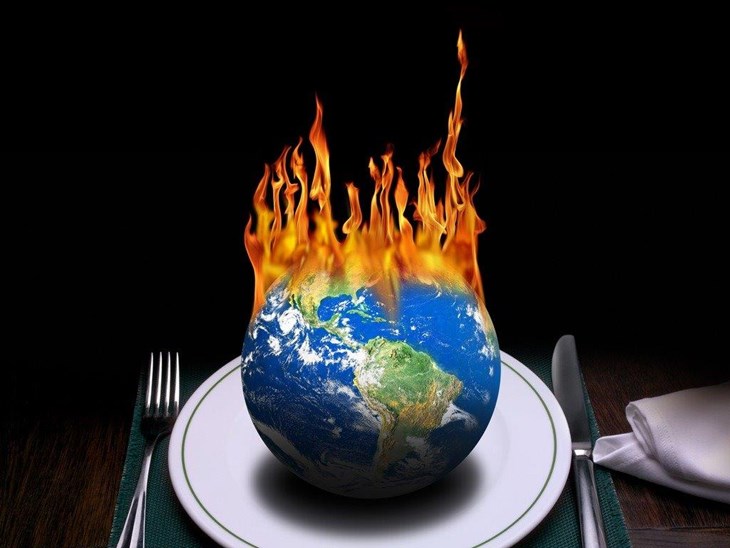8/29/2024
by Felix Ban
My name is Felix, and I have had the absolute privilege of being on food stamps for as long as I can remember. Not only is it a privilege, but a unique opportunity, because I can use my government-funded dollars to buy into a system that I can confidently agree with.
I come from a line of farmers in agrarian Hungary. A recent visit to extended family has confirmed that we are the weird ones, the ones who have immigrated to the United States and eat food almost exclusively from the grocery store. (I say almost exclusively because I am very proud of the hot pepper flakes that I grow annually in my tiny patio garden). Being passionate about food runs heavily in the family.
The Impact of Food Choices
It was only my last semester in high school when I learned people can do a lot of damage with the foods they choose to eat. I had no idea that the price of meat was way more than what the price tag reflected in the store. I found it awfully strange that I, as someone interested in both food and the environment, only learned about this negative correlation so late in my K-12 education.

In fact, Americans need to reduce their meat consumption by 82% in order to meet planetary health guidelines. I knew I needed to do my part to reduce my environmental impact, but I was nervous because I didn’t know if I could do it. People had always said that plant-based diets were expensive and restrictive. Being on food stamps helped me realize that this wasn’t the case at all.
Exploring Plant-Based Foods
Eating plant-based foods, to me, is a lot less about restricting my consumption of animal products and more about exploring the vast world of plant-based foods that I wasn’t seeing before. I was trying honeynut squash, various vegan chicken alternatives, kale, different seasonings, and so much more that I never even knew about. I fell in love with fresh fruits and vegetables in a way that I had never imagined possible.
Is it entirely the food stamps that motivated me to eat plant-based food? No, there was a mixture of different social and cultural factors that went into that decision, just like anything else. The food stamps were just the catalyst that helped me remain plant-based in the long term. The first few weeks, or even months, of a lifestyle change are always going to be tricky. How could it not be?

For every meal of my life before making the switch, I was just eating meat dressed up in different ways. Being on welfare gave me the confidence to try new foods without worrying about it being a sunk cost. I was allowed to try acorn squash and decide it wasn’t for me, and also try nutritional yeast and decide I never wanted to be without it again (please do try it if you haven’t, it’s very delicious and high in B-vitamins).
A Fulfilling Destination
Being on welfare gave me the financial confidence to question the societal norm of eating animal products and decide to buy into a new system that aligns with my values. I realized that the narrative about plant-based eating being restrictive and expensive was not only misleading but detrimental to those trying to make healthier and more sustainable choices. By exploring the vast array of plant-based foods, I found a way to nourish my body while also taking a stand for the environment and animal welfare. Food stamps helped me make this lifestyle change permanently.

Moreover, I've discovered that being plant-based can be more affordable than a diet heavy in animal products, given you have the time to learn about the cuisine and experiment. Oxford University research has even found that a vegan diet can reduce your grocery bill by a third. Staple foods like grains, beans, and vegetables are not only nutritious, but also some of the cheapest items in the grocery store.
This journey has shown me that a plant-based diet is not a sacrifice but a beautiful way to align your tastes with your values. By embracing this lifestyle, I have found a sustainable and fulfilling way to live, one that I am proud to share and advocate for.
Learn More
Learn more about Compassion in World Farming's food policy for planetary health.

